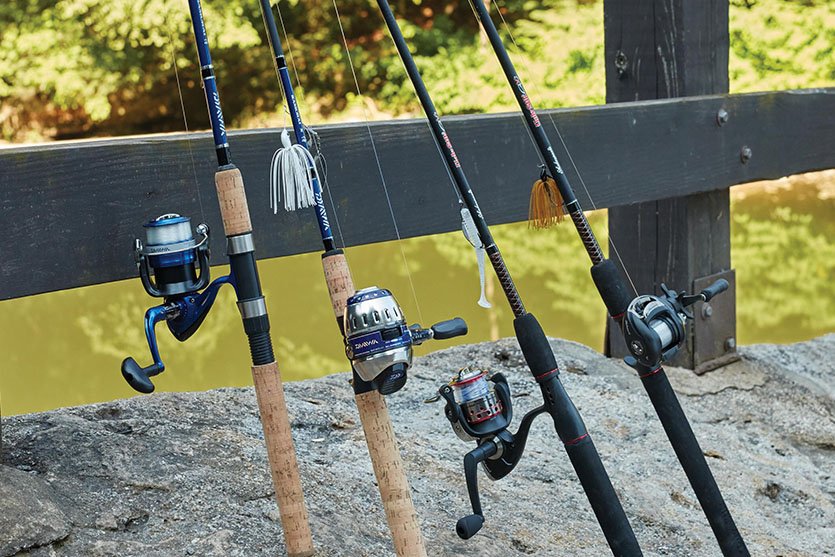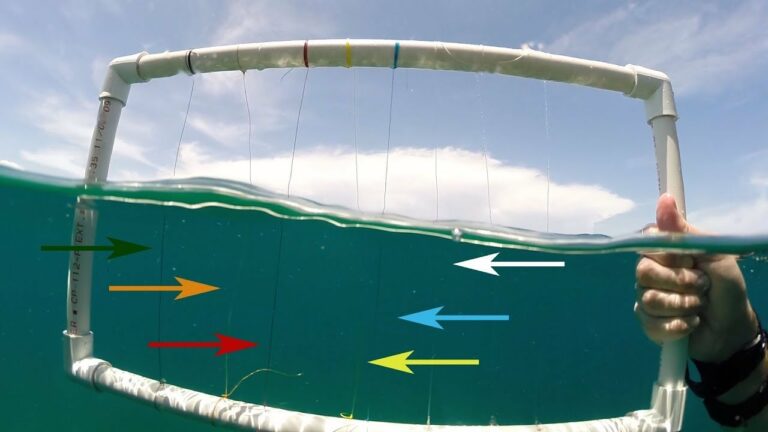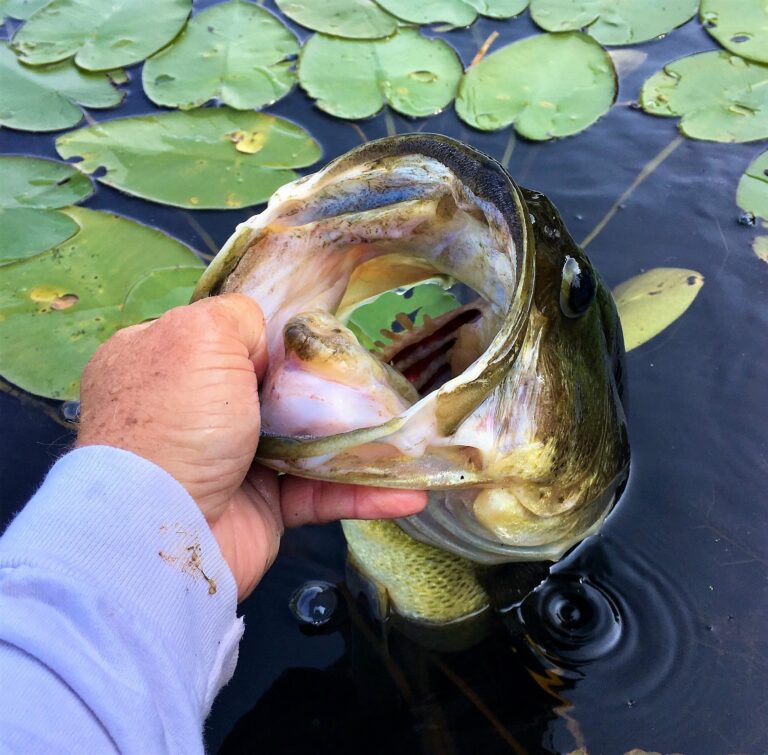Understanding The Distinction: Fishing Rod Vs Fishing Pole
When it comes to fishing gear, there are often terms that can leave beginners feeling puzzled. One such confusion arises when discussing fishing equipment: fishing rod or fishing pole? Is there even a difference? Well, the short answer is yes. While these terms are often used interchangeably, there are subtle distinctions between a fishing rod and a fishing pole that every angler should understand. In this article, we’ll dive deeper into what sets these two apart and help you navigate the world of fishing gear with confidence. So, what is the difference between a fishing rod and a fishing pole? Let’s find out.
What is the Difference Between a Fishing Rod and a Fishing Pole?
Fishing is a popular outdoor activity that has been practiced for centuries. Whether you are a professional angler or a casual fishing enthusiast, you have probably come across the terms “fishing rod” and “fishing pole” at some point. These two terms are often used interchangeably, but they do have subtle differences. In this article, we will delve into the nuances between a fishing rod and a fishing pole, exploring their designs, functionality, and usage.
Design and Construction
When it comes to design and construction, both fishing rods and fishing poles share some common features. They are both long, slender tools used to cast a fishing line into the water. However, there are key differences in their construction that set them apart.
Fishing Rod
A fishing rod typically consists of several components, including a rod blank, guides, handle, reel seat, and a reel. The rod blank is the main body of the fishing rod, usually made from graphite, fiberglass, or a combination of both materials. It provides the backbone and flexibility needed to cast and retrieve the fishing line.
The guides, also known as eyes, are small loops attached to the rod blank. They guide the fishing line along the length of the rod, reducing friction and ensuring smooth line movement. The handle is where the angler holds the fishing rod, providing comfort and control during casting and reeling. The reel seat is a component that holds the fishing reel securely in place on the fishing rod.
Fishing Pole
On the other hand, a fishing pole is a simpler and more traditional design. It consists of a single, flexible pole with no additional components like guides or a reel seat. In its most basic form, a fishing pole is a long stick, typically made from bamboo or a similar material. It has a natural bend or flexibility, allowing anglers to cast the line with a whipping motion.
The absence of guides means that the fishing line is directly threaded through the pole, which requires manual handling and may result in more friction during casting and retrieval. Fishing poles are often used in traditional fishing methods and are associated with a more simplistic and nostalgic approach to angling.
Functionality
While both fishing rods and fishing poles serve the purpose of catching fish, their functionality can vary significantly.
Fishing Rod
Fishing rods are designed with versatility in mind. They come in various lengths, power ratings, and action types to cater to different fishing techniques and target species. The use of guides allows for smoother line casting and retrieval, reducing friction and maximizing casting distance. Fishing rods are typically paired with fishing reels, which provide additional features like line storage, drag systems, and gear ratios for improved angler control.
The combination of a fishing rod and reel provides anglers with more control over the fishing line, making it easier to cast accurately, control the depth, and manipulate the bait or lure. Fishing rods are popular choices for anglers who engage in different fishing styles, such as baitcasting, spinning, or fly fishing.
Fishing Pole
Fishing poles, on the other hand, are simpler in functionality but can still be effective in certain fishing scenarios. They are often used in traditional and recreational fishing methods, such as cane pole fishing or ice fishing. The flexibility of the pole allows for natural bait presentation and can be advantageous in situations where delicate presentations are required, such as when fishing for panfish or trout.
Fishing poles are often favored by beginners or those seeking a more simplistic and nostalgic fishing experience. They provide a more hands-on approach to angling, as the angler relies on their own skill and technique to cast and retrieve the line.
Usage and Applications
The choice between a fishing rod and a fishing pole depends on various factors, including fishing style, target species, and personal preference.
Fishing Rod
Fishing rods have a wide range of applications due to their versatility. They are suitable for various fishing techniques, including freshwater and saltwater fishing, and can handle different types of fish species. Anglers can use fishing rods for casting lures, baits, or flies, depending on the fishing style and target species.
Fishing Pole
Fishing poles are commonly used in specific fishing scenarios. They are often favored for simple, recreational fishing activities, such as fishing from the shore, pier, or ice hole. Fishing poles are particularly popular among beginners and children due to their ease of use and affordability. They provide an accessible entry point into the world of fishing for those who are new to the sport.
In conclusion, while the terms fishing rod and fishing pole are often used interchangeably, there are distinct differences between the two. Fishing rods are more complex in design, featuring components like guides, handles, and reel seats. They offer versatility, control, and are suitable for various fishing techniques. Fishing poles, on the other hand, are simpler in design, consisting of a single flexible pole without additional components. They provide a nostalgic and hands-on approach to fishing and are commonly used in recreational or traditional fishing methods.
Ultimately, the choice between a fishing rod and a fishing pole depends on personal preference, fishing style, and target species. Whether you opt for the versatility of a fishing rod or the simplicity of a fishing pole, both can provide enjoyable and rewarding fishing experiences.
Understanding Fishing Rods and Basics of How to Buy a Fishing Pole
Frequently Asked Questions
What is the difference between a fishing rod and a fishing pole?
A fishing rod and a fishing pole are often used interchangeably, but there are subtle differences between the two. The main distinction lies in their design and construction:
What is a fishing rod?
A fishing rod refers to the entire apparatus used for fishing, including the main shaft, guides, and reel seat. It is usually made up of multiple sections that can be joined together, allowing for easy storage and transportation.
What is a fishing pole?
A fishing pole typically refers to a single-piece rod that doesn’t have interchangeable sections. It is often simpler in design and more lightweight, making it suitable for basic or casual fishing activities.
Can a fishing rod and a fishing pole be used interchangeably?
While the terms are sometimes used interchangeably, fishing rods and fishing poles have different capabilities and purposes. Fishing rods, with their adjustable length and added features, offer greater versatility and control compared to fishing poles.
What are the advantages of using a fishing rod over a fishing pole?
Using a fishing rod allows for various benefits, such as the ability to cast longer distances, handle heavier lines and larger fish, and take advantage of advanced features like adjustable drag systems and multiple gear ratios in the reel.
When should I use a fishing pole instead of a fishing rod?
A fishing pole is ideal for simple fishing activities, such as basic casting in small bodies of water or situations where portability is a priority. It can be a good option for beginners or those who prefer a more straightforward approach to fishing.
Which one is more suitable for professional fishing?
For professional fishing, a fishing rod is generally more suitable due to its advanced features, durability, and ability to handle various fishing styles and techniques. The versatility and control provided by a fishing rod make it the preferred choice for experienced anglers.
Final Thoughts
In conclusion, the difference between a fishing rod and a fishing pole lies in their design and usage. A fishing rod is typically longer and more flexible, designed for casting and reeling in fish with the assistance of a reel. On the other hand, a fishing pole is shorter and does not have a reel, relying on the angler’s hand to manipulate the line. Both serve the purpose of catching fish, but the choice between a fishing rod and a fishing pole depends on personal preference, fishing style, and the type of fishing being done. Understanding the distinction between the two can help anglers select the right equipment for their fishing adventures.



